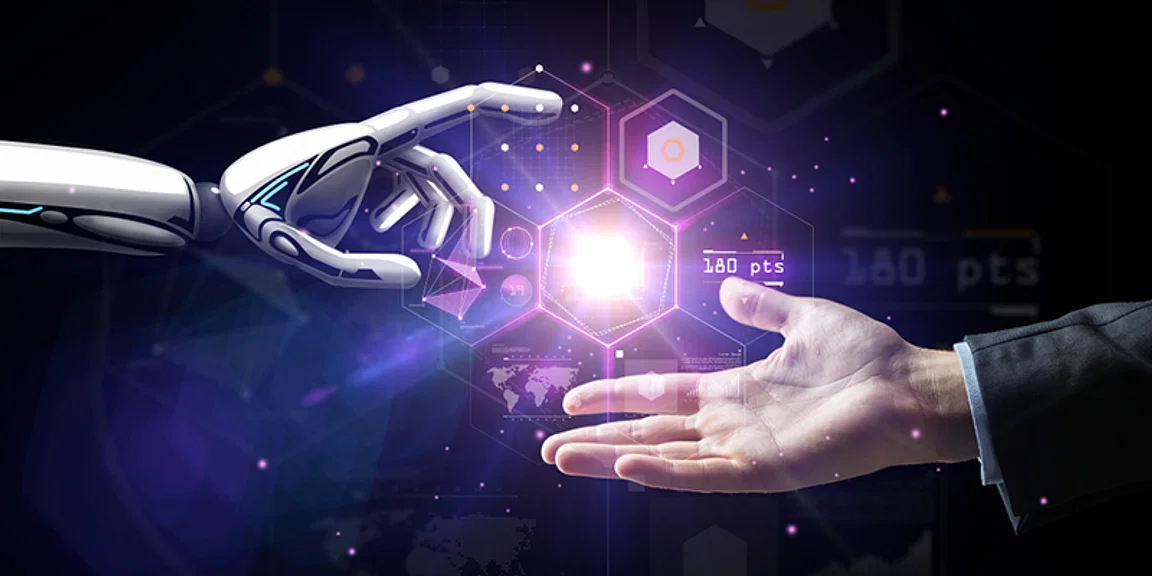But watchdogs and guardrails needed.
Artificial Intelligence (AI) has emerged as a mighty technological force, transforming various aspects of our lives. With its potential to automate tasks, improve efficiency, and help us make complex decisions, collaborative AI holds great promises for enhancing societies everywhere.
As this technology advances, however, concerns have arisen regarding its negative impacts. Writing in the Wall Street Journal, Sherry Turkle, Professor of the Social Studies of Science and Technology, at Massachusetts Institute of Technology, warns us, “Having built the machines that will judge us, now we will train ourselves to please the machines.” Prof. Turkle was referring to corporate human relations and AI-based personnel
OpenAI CEO, Sam Altman, the developer of ChatGPT, appearing before a US Senate subcommittee recently, too warned of the risks of artificial intelligence, saying, “If this technology goes wrong, it can go quite wrong.”
Despite this warning, AI has the potential to enhance us by amplifying our capabilities. It can assist us in tackling complicated problems, expanding our intellectual potential, and enabling us to make more informed decisions.
AI-powered tools can analyse vast amounts of data, uncover patterns, and generate valuable insights, leading to advancements in fields such as healthcare, climate change, and scientific research. By automating mundane tasks, AI could free up human time and energy, allowing us to focus on more meaningful and creative endeavours to reach new heights of knowledge and achievement.
The widespread adoption of AI has ignited concerns about job displacement and economic inequality. However, history has shown that technological advancements often create new job opportunities and lead to overall economic growth, albeit transitions can be disruptive.
AI can revolutionize industries, creating new professions and transforming existing ones. It can enable humans to shift from repetitive and labour-intensive tasks to more intellectually stimulating and emotionally fulfilling roles, thus, fostering a society where individuals can focus on personal growth, creativity, and innovation.
One of the key challenges associated with AI is the ethical considerations surrounding its development and usage. As AI algorithms are trained on vast amounts of data, biases, and prejudices embedded in that data can be inadvertently perpetuated. This raises concerns about fairness, accountability, and potential discrimination. To ensure that AI enhances our humanity, it is crucial to address these biases and strive for transparent, inclusive, and ethical AI systems. By actively involving diverse voices in AI development, we can mitigate biases and ensure that AI is used for the betterment of all of humanity.
Rather than replacing humans, AI has the potential to foster collaboration between humans and machines. By leveraging the strengths of both, we can achieve outcomes that surpass what either can accomplish alone.
AI can assist humans in areas where we may fall short, such as processing vast amounts of information quickly or performing repetitive tasks with precision. This collaboration allows humans to retain their unique qualities, including creativity, empathy, and intuition, while leveraging AI’s computational power. By striking the right balance between human intuition and machine intelligence, we can harness the full potential of AI while preserving our humanity.
Writing in Harvard Business Review, Prof Tsedal Neeley raises some serious questions about the responsible and ethical use of generative AI, especially because it is a radical and transformative technology. It’s radical because “it’s able to find patterns that we can’t see and then use them to provide insights and analysis, predictions, suggestions, and even full drafts all on its own.” AI is transformative because it’s a collaborative system, indispensable for all our work. The question of not using AI does not arise. We have to prepare our organisations to make the best of AI.
Nonetheless, since we don’t know how generative AI works—it’s invisible and inscrutable—transparency and accountability are crucial in the use of AI. The challenge is how to erect guardrails around a generative AI system so its responses truly and consistently reflect the culture and mission of the organisation.
AI systems can perpetuate harmful bias, spread misinformation, violate privacy, and can cause serious security breaches. Therefore, it is important to ensure the datasets we use to train AI models are representative and don’t include biases, argues Prof Neeley rightfully.
Most importantly, we have to ensure that the AI models we develop, or use won’t violate human rights because as AI grows in strength and becomes increasingly integrated into our daily lives and work, its potential for harm increases multifold. We need to establish ethical watchdogs, rules, and regulations, to protect against the potential harms of generative AI.
Sen. Josh Hawley (R., Mo.), the top Republican on the Senate Judiciary Committee panel hosting the hearing, asked a significant question: “Will we strike that balance between technological innovation and our ethical and moral responsibility?”
While AI presents challenges and risks, its potential to enhance our humanity should not be overlooked. By augmenting human capabilities, transforming work and economy, addressing ethical concerns, and fostering human-machine collaboration, AI can be a powerful tool for progress and advancement. It could be a next step in human evolution.
To ensure that AI enhances rather than diminishes our humanity, it is essential to approach its development and implementation with careful consideration, transparency, and ethical frameworks. By doing so, we can unlock the transformative potential of AI while safeguarding the values that define us as humans. With responsible and thoughtful integration, AI, “the greatest technology humanity has yet developed,” as ChatGPT’s Altman says, can be a driving force behind a brighter and more prosperous future for all of humanity.
Dr Narain Batra is the author of India In A New Key: Nehru To Modi. He is affiliated with the Diplomacy and International Program in the Graduate College At Norwich University, US.

